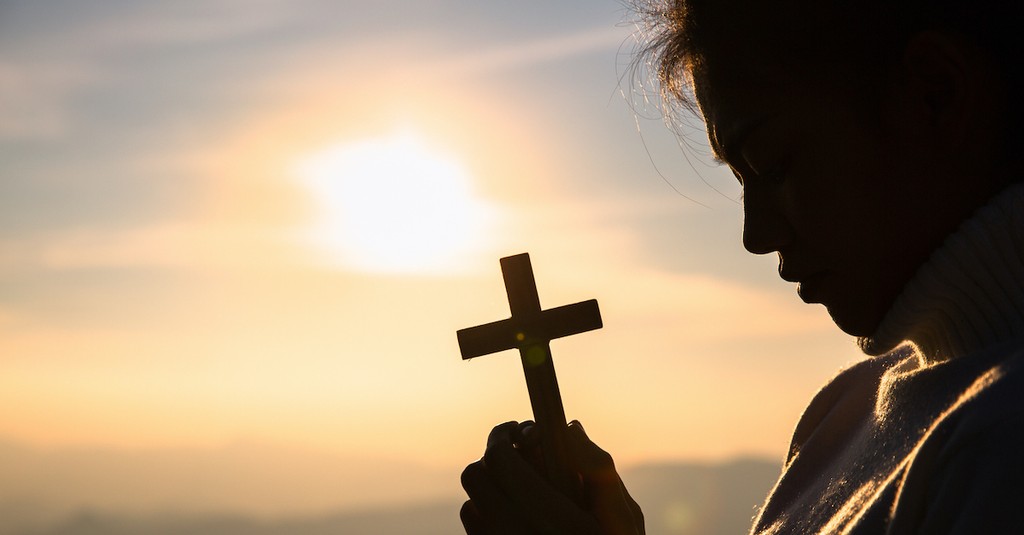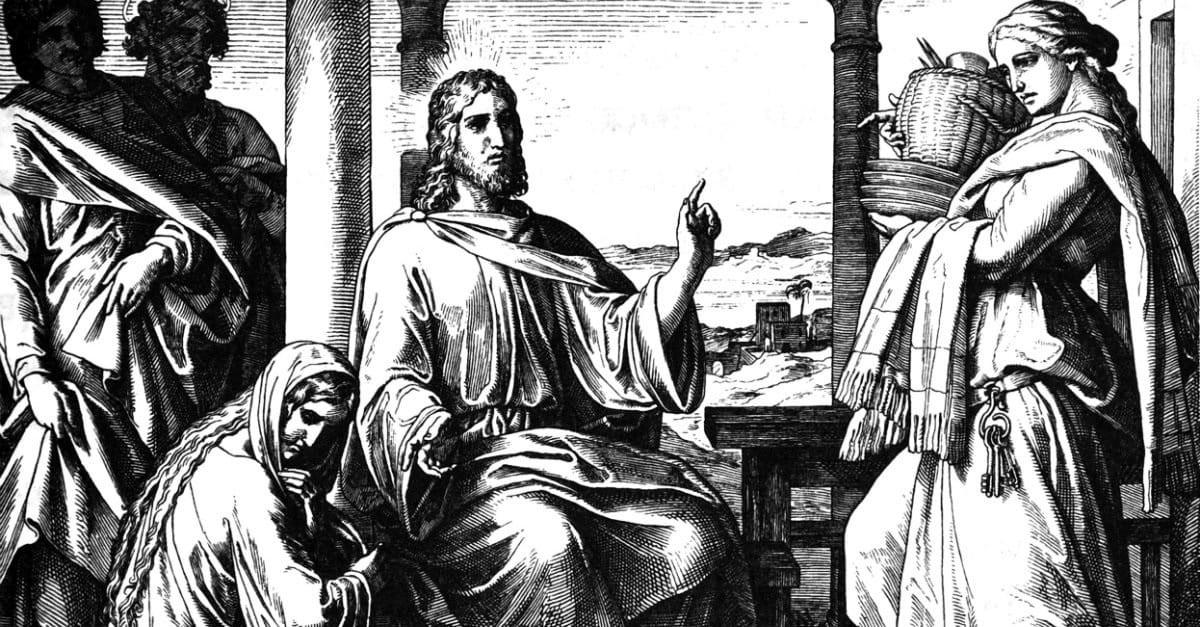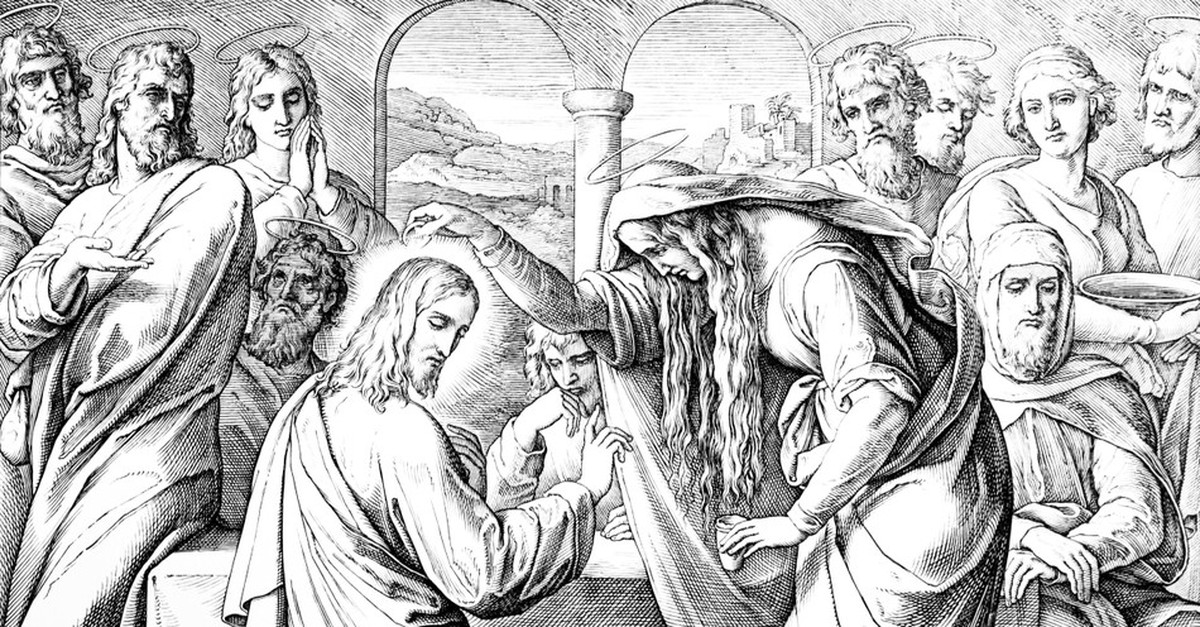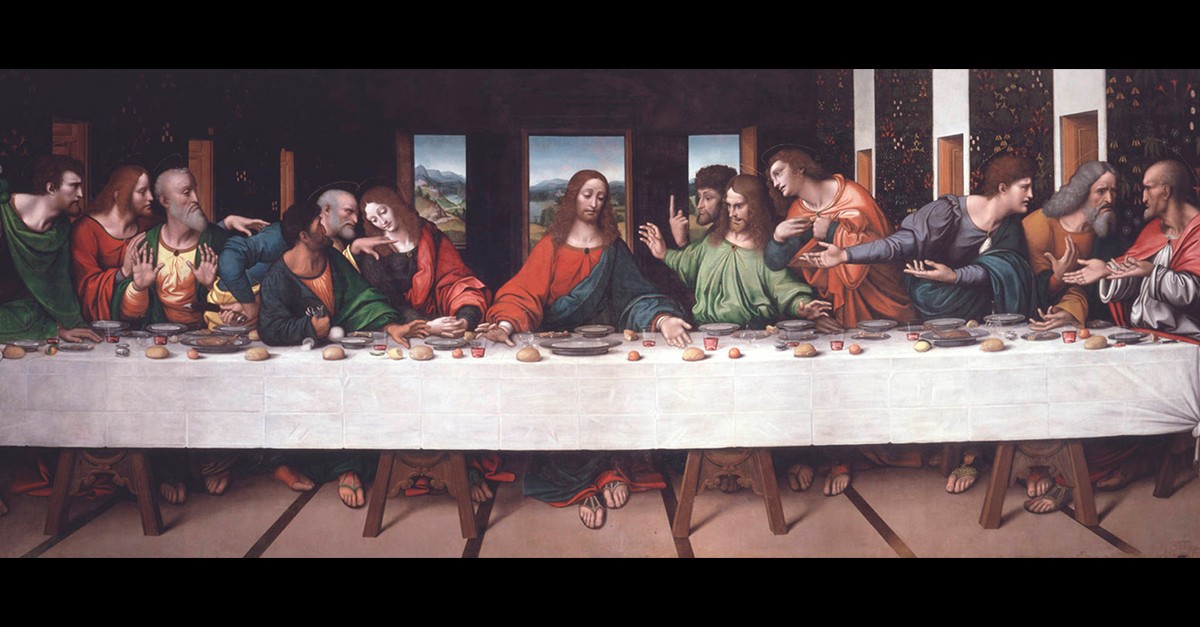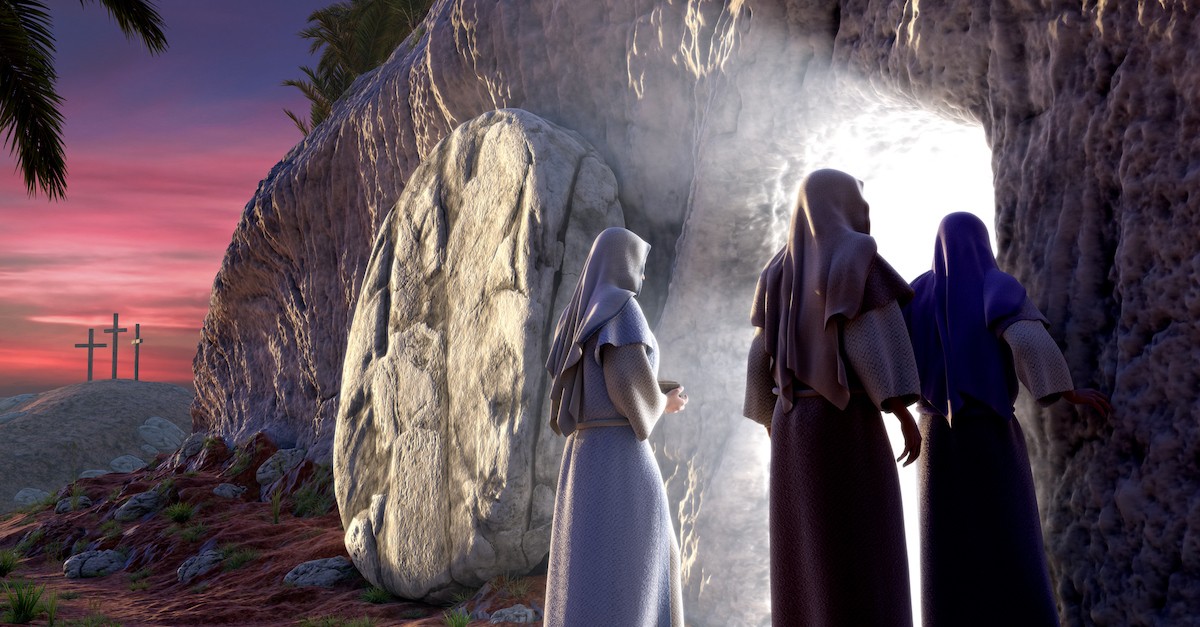Scripture Readings: Matthew 26:20-30; Mark 14:17-26; Luke 22:14-23; 1 Corinthians 11:17-34
On Thursday evening, Jesus and His disciples recline at a table together to celebrate the Passover meal. As Jesus pours the wine and breaks the bread, He knows this will be the last supper He will share with His friends before the crucifixion. The meal becomes a sacred display of Christ’s atoning death—and an example to Believers, in every age, of how to commemorate His matchless sacrifice.
“While they were eating, Jesus took bread, spoke a blessing and broke it, and gave it to the disciples, saying, “Take it; this is My body. Then He took the cup, gave thanks, and gave it to them, and they all drank from it. He said to them, “This is My blood of the covenant which is poured out for many. Truly I tell you, I will no longer drink of the fruit of the vine until that day when I drink it anew in the kingdom of God.” (Mark 14:23-25)
Jesus washes His disciples’ feet during their meal and gives them a new mandate to “love one another.” The word “maundy” comes from the Latin word mandatum, which means command, which is why Christians today call it Maundy Thursday.
Immediately following The Last Supper, Jesus takes His disciples into a grove of ancient olive trees called the Garden of Gethsemane. He separates Himself, Peter, James, and John from the group and asks the three disciples to watch and pray with Him. (Matthew 26:41)
Twice, Jesus awakens His inner circle and reminds them to pray. Not able to keep their eyes open, the three men fail our Lord when He needs them most. Filled with anguish and sorrow, Jesus moves away from the men and cries out to God. “Abba, Father,” he said, “everything is possible for you. Take this cup from me. Yet not what I will, but what you will.” (Mark 14:36) Knowing the depth of our sin and our complete unworthiness, Jesus chooses to give Himself to the Father’s will out of selfless love for us.
There, in the Garden of Gethsemane, where Jesus recommits to His loving mission—Judas completes His traitorous mission. For the price of a slave, 30 pieces of silver, the wicked disciple leads the authorities to Jesus’s place of prayer and betrays Him with a kiss.
Here is the source of every sacrament,
The all-transforming presence of the Lord,
Replenishing our every element
Remaking us in his creative Word.
For here the earth herself gives bread and wine,
The air delights to bear his Spirit’s speech,
The fire dances where the candles shine,
The waters cleanse us with His gentle touch.
And here He shows the full extent of love
To us whose love is always incomplete,
In vain, we search the heavens high above,
The God of love is kneeling at our feet.
Though we betray Him, though it is the night.
He meets us here and loves us into light.
Malcolm Guite, Maundy Thursday
Maundy Thursday Prayer: “O Thou who art the Father of that Son which hast awakened us, and yet urgest us out of the sleep of our sins, and exhortest us that we become Thine, to Thee, Lord, we pray, who art the supreme truth, for all truth that is, is from Thee.” —Alfred the Great
Photo Credit: Leonardo Da Vinci
